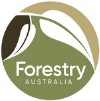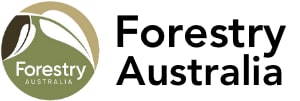
MEDIA RELEASE
Friday 20 May
Importing coal to replace jarrah a poor outcome for WA
Forestry Australia has said reports that coal may have to be imported to produce high-grade silicon in Western Australia* cast further doubt over the decision to end native timber harvesting in the state.
Forestry Australia Vice President Dr Lachlan McCaw said the reports brought further question and doubt to claims that ending native harvesting would assist in mitigating climate change.
“Importing coal to substitute for sustainably and locally-sourced charcoal in the silicon manufacture process is clearly a poor outcome for the environment, the south-west community and the Western Australian economy,” Dr McCaw said.
“This is a direct consequence of the failure by the McGowan government to undertake a comprehensive review of the environmental, economic and social impacts of its decision to cease commercial timber harvesting in native forests. This decision was announced in September 2021 without any prior consultation with affected communities and industries.
“Charcoal derived from jarrah residue logs and sawmill waste is currently used in the manufacture of high-grade silicon, a key input for solar panels, computer chips and variety of other products critical to a future economy based on renewable energy. Australia’s only silicon manufacturer Simcoa is based in south-west Western Australia and uses around 140,000 tonnes of timber residues in its silicon manufacturing process.
“With a looming shortfall of jarrah following the decision by the Western Australian government to end commercial timber harvesting after 2023, Simcoa is facing up to the prospect of having to import coal from Colombia to substitute for jarrah charcoal in its manufacturing process. This is clearly not a preferable outcome for the Western Australian community or the environment and undermines endeavours to curb climate change through reducing emissions and reliance on non-renewable resources.
“Charcoal produced from jarrah is a renewable resource and has almost twice the carbon content of coal.
“Looking to the future, potential opportunities exist for private forest growers to supply wood suitable for producing high quality charcoal, but this requires coordinated planning, research into suitable tree species and time for plantations to reach a commercial size and scale.
“The lead time to establish a viable supply of charcoal from private land would be a decade or more.
“The Western Australian government has claimed repeatedly that climate change is one of the main reasons behind its decision to cease commercial timber harvesting in native forests, but it has failed to support the claim with evidence.
“However, there is increasing evidence of the unintended consequences of the decision, with clear negative flow-on effects to climate change, the environment and the Western Australian community. “
* Silicon manufacturer may be forced to import coal as jarrah supply, a key input, dwindles, ABC South West WA.
Media contact:
David Abbott
Font PR
0400 446 736
davida@fontpr.com.au

